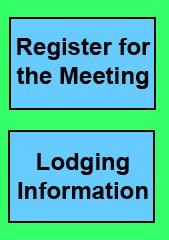
Land-Use Change, Climate Change, and Hydrologic Extremes: Unsaturated Zone Responses and Feedbacks
2017 USGS UZIG Workshop & Information Exchange
University of Florida, Gainesville April 04–06, 2017
All UZIG members and affiliates are encouraged to participate in the 2017 Unsaturated Zone Interest Group (UZIG) workshop, a 3-day stand-alone event hosted by the University of Florida. The workshop will consist of 2 days (total) of oral and poster sessions split around a full-day field trip. The workshop will promote the collaborative sharing of ideas, research results, and technical expertise in a friendly informal setting. Its main objective will be to advance unsaturated-zone science by fostering lively exchange of information on emerging theories, data, and technology across research groups.
Submissions on topics related to the theme as well as any other unsaturated-zone topic are welcome.
As with previous UZIG meetings, we are planning to publish accounts of original research presented at this workshop in the peer-reviewed literature. Presenters at the 2017 UZIG Workshop will be invited to submit manuscripts for publication consideration as part of special collections in the Journal of Hydrology—Regional Studies (for place-focused studies) and Vadose Zone Journal (for process-focused studies). The sign-up form includes a checkbox to indicate interest in either of these publication options.
Keynote Speaker: Dr. Upmanu Lall
Talk Title: From Paleo to Future climates: How could interannual to decadal to secular climate variations interact with vegetation, humans, soils and determine the phase space of the unsaturated zone
Alan & Carol Silberstein Professor of Engineering & Director of Columbia Water Center, Columbia University, NY

His current research covers 3 major initiatives that are developed through the Columbia Water Center. The Global Water Sustainability Initiative is focused on an assessment of global water scarcity and risk. The Global Flood Initiative is motivated by the desire to predict and manage floods at a global scale recognizing their climate drivers, and supply chain impacts. Americas Water is driven by the goal of developing sustainable water management and infrastructure design paradigms for the 21st century recognizing the linkages between urban functioning, food, water, energy and climate. These programmatic initiatives are backed by research on systems level modeling of hydrology, climate, agronomy and economics. Dr. Lall has pioneered the application of techniques from (a) nonlinear dynamical systems, (b) nonparametric methods of function estimation and their application to spatio-temporal dynamical systems, (c) Hierarchical Bayesian models, (d) systems optimization and simulation and (e) the study of multi-scale climate variability and change as an integral component of hydrologic systems

|
Workshop announcementWorkshop ProgramRegister Online
Other Workshop Information
Presenter Information:
Questions? Please contact:
|
The workshop is co-sponsored by the USGS, the University of Florida Water Resources Institute, and the University of Florida Institute of Food and Agricultural Sciences

|
For more information contact: UZIG Webmaster Last modified: September, 2016
